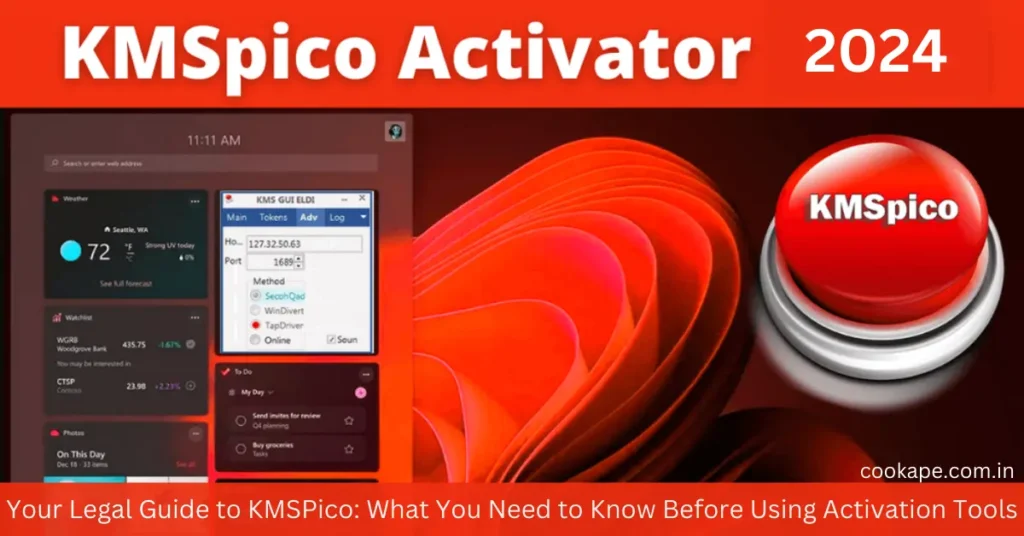Introduction
In today’s digital age, activating software the right way can sometimes feel like a mystery. You’ve probably come across tools like KMSPico if you’ve ever searched for ways to activate popular software without breaking the bank. But before you dive into any activation tool, it’s important to understand what KMSPico is, how it works, and, most importantly, the legal implications.
Let’s explore what KMSPico does, the risks involved, and how to ensure you’re activating your software legally and safely.
What is KMSPico, and How Does It Work?
KMSPico is an activation tool widely known for activating Microsoft products like Windows and Office. It’s based on the Key Management Service (KMS), a system Microsoft developed to allow volume licensing on multiple computers within organizations. KMSPico emulates this process, tricking your computer into thinking it’s legally activated through an official KMS server.
Why You Should Be Cautious About KMSPico
Although KMSPico may sound convenient, using it (or any similar tool) carries significant legal and security risks:
- Legal Implications: Activating software through unofficial tools can violate software license agreements, leading to legal consequences.
- Security Concerns: Since KMSPico isn’t official software, downloading it can expose your system to malware and viruses, which can steal your data or harm your computer.
- Software Integrity: Non-genuine activations might limit your access to updates and support from Microsoft, leaving your system vulnerable.
Legal Ways to Activate Your Software
Rather than taking risks with tools like KMSPico, consider these legitimate ways to activate your software:
- Buy a Genuine License: Microsoft offers licenses for both home and business use. You can often find discounts on official licenses through Microsoft’s website, authorized retailers, or educational programs.
- Use Free Alternatives: For those on a tight budget, free software alternatives like LibreOffice for Office applications or Linux for operating systems are great options that come at no cost and with no legal issues.
- Look for Student or Non-Profit Discounts: Microsoft and other software providers often provide free or discounted versions to students, educators, and non-profits.
Protecting Yourself and Your System
If you’re trying to avoid costly software but want to stay within the law, consider the following tips:
- Always Download from Official Sources: This ensures you get secure, legitimate software without any hidden surprises.
- Beware of “Free” Offers: Be cautious of websites promising free activation tools. If it sounds too good to be true, it probably is.
- Research Open-Source Software: Many open-source applications are just as capable as paid software and provide peace of mind.
Conclusion
While KMSPico might seem like a quick solution, the legal and security risks simply aren’t worth it. By exploring legitimate alternatives, you can enjoy full software functionality without the worry of legal consequences or malware. Making informed choices about software not only keeps you safe but also supports the developers creating the tools you rely on.
